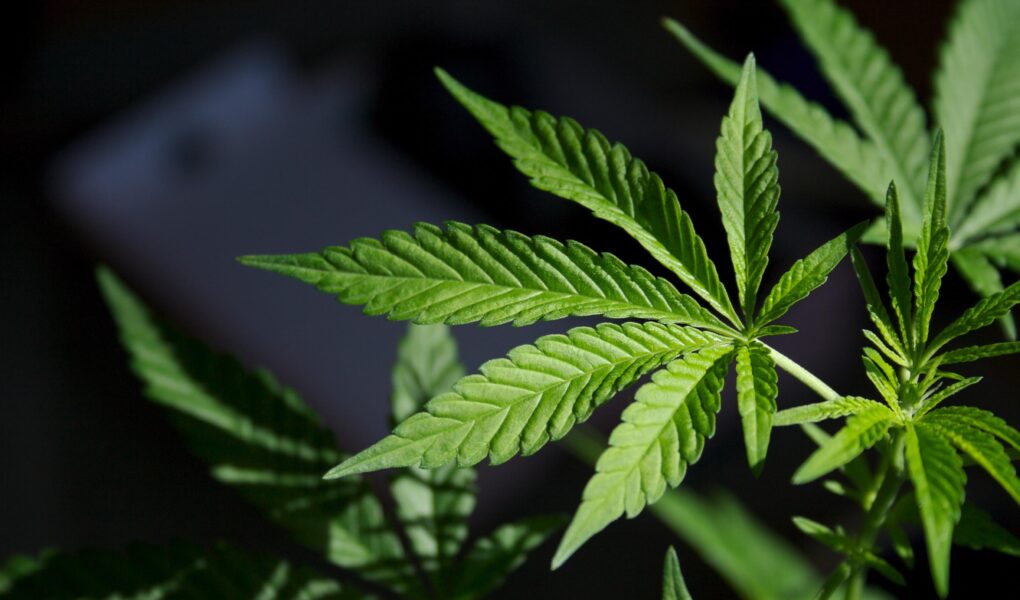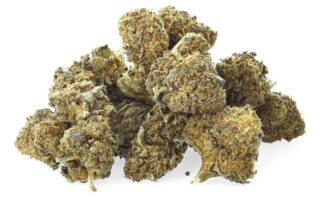In the intricate tapestry of human experience, emotions thread through our lives, guiding our reactions, relationships, and resilience. They are both the compass and the canvas upon which we paint our interactions. As the world grapples with the evolving perceptions of marijuana, a substance steeped in controversy and potential, an intriguing intersection emerges: the interplay between cannabis use and emotional intelligence. Delving into this nuanced relationship invites us to explore how marijuana may influence our emotional awareness, empathy, and interpersonal dynamics. In this exploration, we will disentangle the myths from the reality, considering both the scientific insights and personal narratives that shape our understanding of how this plant might affect our emotional lives. Join us as we navigate the complexities of cannabis and its potential impact on our ability to connect with ourselves and others in this ever-changing world.
Table of Contents
- Understanding Emotional Intelligence: The Impact of Marijuana on Mood Regulation
- Exploring the Connection: How Cannabis Influences Social Interactions and Empathy
- Enhancing Self-Awareness: Using Cannabis Mindfully for Emotional Clarity
- Practical Strategies: Balancing Cannabis Use with Emotional Growth and Resilience
- Q&A
- Concluding Remarks
Understanding Emotional Intelligence: The Impact of Marijuana on Mood Regulation
Emotional intelligence (EI) plays a vital role in navigating social complexities and managing one’s own emotions, making it essential for healthy relationships. Cannabis, commonly known as marijuana, has been a topic of extensive research regarding its effects on mood and emotional regulation. While some users report a heightened sense of relaxation and reduced anxiety, others may experience negative mood swings or increased feelings of paranoia. The impact of marijuana on emotional states can be understood through various factors, including the strain’s THC and CBD content and the user’s individual psychological makeup. Here are some key considerations:
- THC vs. CBD: THC is known for its psychoactive effects, while CBD is often associated with calming and non-intoxicating properties.
- Individual Variation: Responses to marijuana can differ significantly based on a person’s emotional baseline, making it essential to consider individual mental health histories.
- Dosage Matters: Lower doses may enhance mood while excessive consumption can lead to adverse emotional states.
Research suggests that the relationship between marijuana use and emotional intelligence is complex. While moderate use may offer temporary relief from stress and anxiety, it can also impair emotional awareness and regulation, especially if relied upon heavily. Understanding its role requires a nuanced approach that considers the potential for both benefits and drawbacks. For instance, a study on emotional responsiveness and mood regulation found that:
| Use Frequency | Emotional Awareness | Mood Stability |
|---|---|---|
| Rarely | High | Stable |
| Moderate | Moderate | Variable |
| Frequent | Low | Unstable |
This table indicates how different usage frequencies of marijuana can correlate with emotional awareness and mood stability, illustrating the dual-edged nature of cannabis as it pertains to emotional intelligence. Ultimately, recognizing these dynamics can empower individuals to make informed choices about marijuana use in alignment with their emotional health.
Exploring the Connection: How Cannabis Influences Social Interactions and Empathy
The relationship between cannabis use and social dynamics offers intriguing insights into how this plant can enhance or alter our capacity for empathy and connection. Research suggests that cannabinoids interact with our brain’s endocannabinoid system, influencing neurotransmitters that are pivotal in modulating stress and anxiety levels. This reduction in social anxiety can lead to more open and honest conversations, enabling individuals to express their emotions more freely. Consequently, users may find themselves more attuned to the feelings of those around them, fostering a depth of interaction that can enhance personal relationships.
Moreover, the impact of cannabis on creativity and perception can also play a significant role in social interactions. As users engage in reflective thought and imaginative conversations, they may experience heightened emotional awareness, allowing for an enriched understanding of diverse perspectives. Here are some key aspects of cannabis’s influence on social behavior:
- Increased openness: Cannabis may lower inhibitions, making individuals more receptive to discussing personal experiences.
- Enhanced empathy: Users often report a deeper emotional connection to others, fueling compassion and understanding.
- Altered perceptions: The psychoactive effects can lead to a nuanced appreciation of differing viewpoints.
Enhancing Self-Awareness: Using Cannabis Mindfully for Emotional Clarity
Mindful cannabis use can be an effective pathway towards enhancing self-awareness, especially when it comes to understanding and managing one’s emotions. By selecting strains that promote relaxation and introspection, users can create a mental space that encourages deeper reflection on their feelings and thought patterns. Some benefits of using cannabis in a mindful manner include:
- Increased Introspection: Enhanced ability to reflect on personal experiences and emotions.
- Reduced Anxiety: Lowered levels of stress can lead to clearer thinking and emotional clarity.
- Thoughtful Processing: Encouraged exploration of emotional triggers and responses in a safe environment.
To optimize emotional clarity through cannabis, individuals can utilize specific practices that reinforce mindfulness. Creating a conducive environment, such as a quiet space with minimal distractions, can significantly enhance the experience. Additionally, integrating techniques such as journaling or meditative practices during or after cannabis use allows for deeper insights. Below is a simple guideline for mindful cannabis consumption:
| Step | Action |
|---|---|
| 1 | Select a strain that promotes calm and clarity. |
| 2 | Create a tranquil space free of distractions. |
| 3 | Practice breathing exercises before consumption. |
| 4 | Engage in reflective journaling during the experience. |
| 5 | Review insights and emotions afterwards for personal growth. |
Practical Strategies: Balancing Cannabis Use with Emotional Growth and Resilience
Finding a harmonious relationship between cannabis use and emotional development requires intentional strategies that prioritize mindfulness and self-awareness. Users are encouraged to reflect on their motivations behind cannabis consumption, whether for relaxation, socialization, or medicinal purposes. Keeping a journal can be a powerful tool to document emotions before and after use, helping individuals to identify patterns and triggers. Here are some practical approaches to balance enjoyment with emotional growth:
- Set Clear Intentions: Before consuming cannabis, ask yourself what you hope to achieve—relaxation, creativity, or relief from anxiety.
- Mindful Consumption: Pay attention to your body’s responses and emotions during and after usage to cultivate self-awareness.
- Establish Boundaries: Determine limits on frequency and quantity to ensure cannabis doesn’t impede on other aspects of emotional growth.
Integrating cannabis use into a broader framework of personal resilience can also amplify emotional intelligence. By engaging in activities that promote mental clarity and emotional processing, individuals can create a supportive environment for their cannabis experiences. Consider adopting complementary practices such as:
| Activity | Benefits |
|---|---|
| Meditation | Enhances focus and emotional regulation, promoting a peaceful state of mind. |
| Creative Outlets | Encourages self-expression and can deepen connections with feelings. |
| Physical Exercise | Boosts mood and reduces anxiety, complementing the effects of cannabis. |
Q&A
Q&A: Exploring the Connection Between Marijuana and Emotional Intelligence
Q1: What is emotional intelligence, and why is it important?
A1: Emotional intelligence (EI) refers to the ability to recognize, understand, and manage our own emotions, as well as the emotions of others. It’s crucial because it influences how we interact socially, make decisions, and handle stress. High EI can lead to better relationships, effective communication, and improved mental well-being.
Q2: How does marijuana affect emotions?
A2: Marijuana has a complex relationship with emotions. Many users report feelings of relaxation, enhanced mood, or heightened sensory experiences. However, it can also cause anxiety or paranoia in some individuals. The effects vary widely based on the strain, dosage, and the user’s personal mental health, making the relationship between marijuana and emotions quite nuanced.
Q3: Could marijuana use influence one’s emotional intelligence?
A3: While research is still emerging, some studies suggest that moderate cannabis use might enhance emotional perception and facilitate social bonding in certain contexts. However, excessive use could impair emotional processing and reduce empathy. The impact may depend on individual circumstances, such as prior emotional health and the context of use.
Q4: Are there specific situations where marijuana might help emotional intelligence?
A4: Some individuals report that using marijuana in social settings can help reduce social anxiety, allowing them to engage more freely and openly with others. This could lead to greater empathy and understanding in conversations. However, it’s essential to approach this cautiously, as responses vary by person.
Q5: What should be considered before using marijuana to enhance emotional intelligence?
A5: It’s important to reflect on personal mental health history and the specific context of use. Relying on marijuana as a coping mechanism can lead to dependence or hinder natural emotional processing. Engaging with mental health professionals and considering healthier coping strategies are also vital steps.
Q6: Is there ongoing research regarding this topic?
A6: Yes, researchers are actively exploring the connections between cannabinoid use and emotional health. Studies look at various angles, including potential therapeutic benefits for anxiety and depression and the effects on social behavior. As societal attitudes toward marijuana evolve, we can expect continual advancements in this field.
Q7: What are healthier alternatives for improving emotional intelligence?
A7: There are numerous approaches to enhancing emotional intelligence, including mindfulness practices, meditation, therapy, and engaging in empathy-building exercises. Journaling, active listening, and seeking feedback from others can also foster greater self-awareness and emotional insight without the uncertainties associated with substance use.
Q8: How can individuals maintain a healthy balance if they choose to use marijuana?
A8: Mindful use is key. This includes understanding personal triggers, setting limits, and maintaining awareness of emotions before, during, and after use. Additionally, integrating other emotional intelligence practices into daily life can create a robust framework that supports emotional health alongside responsible cannabis use.
Concluding Remarks
the exploration of marijuana and its interplay with emotional intelligence invites us to reflect on the multifaceted nature of human experience. As we cultivate our understanding of how cannabis can influence emotional awareness and regulation, we find ourselves at the crossroads of science, psychology, and personal growth. Whether viewed through the lens of therapeutic potential or as a cultural phenomenon, the relationship between marijuana and emotional intelligence remains a nuanced dialogue, one that bridges the realms of mind and emotion. As society continues to unravel the complexities surrounding this topic, it is essential to approach it with an open mind and a commitment to informed discussion. In doing so, we can better appreciate the diverse ways in which we navigate our emotional landscapes, ultimately enhancing our connections with ourselves and those around us. As we move forward, let curiosity be our guide, reminding us that the journey toward emotional understanding is as important as the destination itself.



